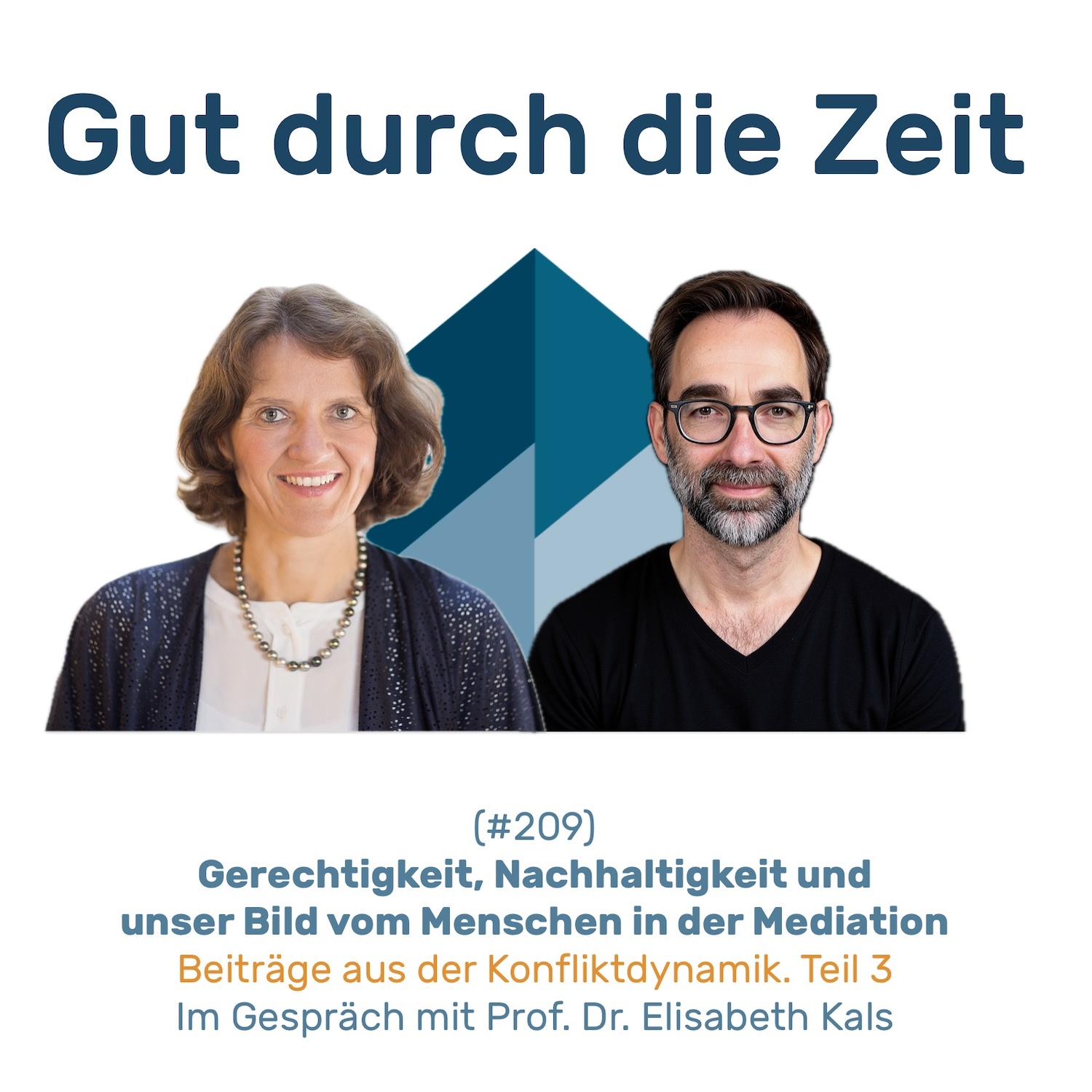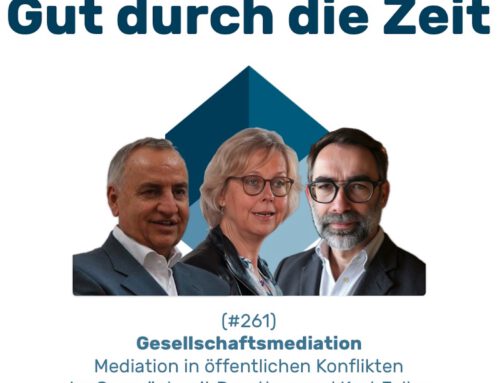INKOVEMA Podcast „Well through time“
#209 GddZ – Justice, sustainability and our image of mankind.
Contributions from the dynamics of conflict. Part 3.
In conversation with Prof Elisabeth Kals
Prof Dr Elisabeth KalsBorn in 1966, studied psychology at the University of Trier and the University of Reading/England; 1991 diploma in psychology; 1993 doctorate ("summa cum laude", since 2003 Professor of Social and Organisational Psychology at the Catholic University of Eichstätt-Ingolstadt, research focus: "Responsibility, justice, values". Application of these to environmentally relevant action, action and decision-making in the context of organisations, motive analysis of voluntary social commitment, questions of justice and emotion psychology, analysis of social conflicts and resolution by means of psychological mediation. Aim and motivation of scientific work: application and provision of psychological research for practical use.
Well through time.
The podcast about mediation, conflict coaching and organisational consulting.
Chapter
0:16 Welcome to the podcast
3:22 Motivation for justice in mediation
7:58 Conflicts and the experience of justice
11:26 Past vs. future in conflicts
15:27 The role of sustainability
18:59 The paradigm shift towards sustainability
22:30 Intergenerational justice
23:06 Images of people and their meaning
30:08 Mediation in social conflicts
35:06 Closing words and reflection
Summary of content
In this episode of the podcast "Gut durch die Zeit", we take a deep dive into the complex topic of human images and their influence on mediation, conflict coaching and sustainable behaviour. I have the honour of speaking with Professor Elisabeth Kals from the Catholic University of Eichstätt-Ingolstadt, an expert in this field. We will use the article from the journal Konfliktdynamik as a starting point for our discussion on the connection between human values, justice and sustainable conflict management.
We start with the fundamental questions: What are Images of people and how do they shape our Understanding justice and conflict? Mrs Kals emphasises that justice cannot be understood as a monolithic concept, but rather as a pluralistic construct, the both codified law as well as subjective experiences of justice includes. In mediation, it is important to recognise and respect these different perspectives. We specifically discuss how the experience of justice influences the dynamics of conflict and how mediators can use these insights to promote constructive dialogue.
In the further course of our conversation, we will take a look at the Sustainability and its close link to questions of justice. The shift from environmental protection to a broader concept of sustainability is analysed, in particular the multitude of conflicts of interest that go hand in hand with this. Ms Kahls and I emphasise that the ecological, economic and social dimensions of sustainability must be integrated in order to find non-violent and just solutions. We also explore how the perception of justice and fairness works in these contexts and what role mediation can play here.
A central point of the discussion is how to deal with past injustices in conflicts, especially in working groups and organisations. We address the "iceberg model" of conflict, which illustrates the idea that superficial conflicts often hide deeper, unresolved conflicts of justice. Recognising that many conflicts in the present are shaped by past experiences requires mediators to navigate carefully between the past and the future. We realise that a comprehensive reappraisal of the past is not always necessary; sometimes it is enough to focus on a shared, positive future.
In addition, we shed light on the Concept of human imageswhich not only influences individual ideas of justice, but also the basic understanding of how we as a society approach conflicts. A humanistic view of humanity promotes the idea that people are capable of taking responsibility and shaping conflicts independently. The importance of anchoring this way of thinking in mediation is discussed in order to mobilise the potential of those involved.
The episode concludes with an outlook on the challenges and opportunities that arise in mediation practice, particularly with regard to social conflicts, which are becoming increasingly relevant in today's world. We discuss examples from other countries where mediation has been successfully used to resolve social and environmental conflicts. Through these comparisons, it becomes clear that mediation is much more than a procedure; it is a method that can initiate transformation processes.
This exciting discussion will explore the complex interrelationships between people-centredness, justice, sustainability and the role of mediation in different contexts. Our aim is to promote a deeper understanding of these issues and show how mediation can be used as a tool for positive change.
Complete transcription





Leave A Comment